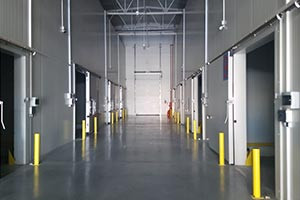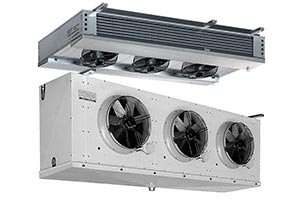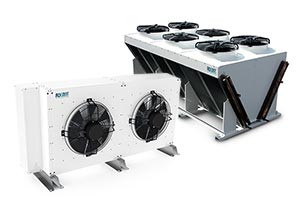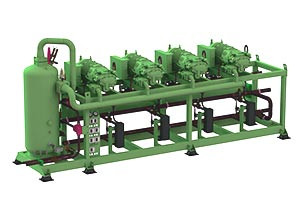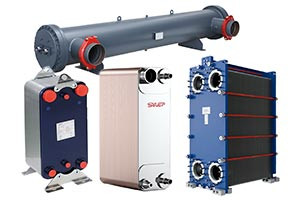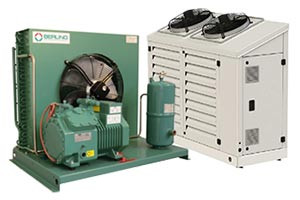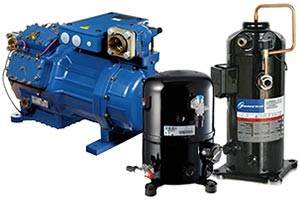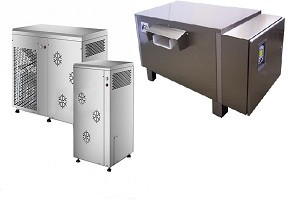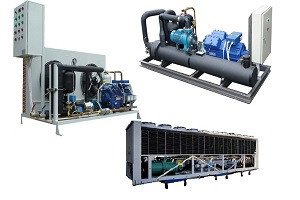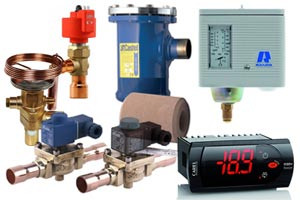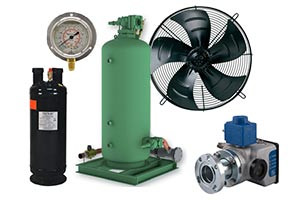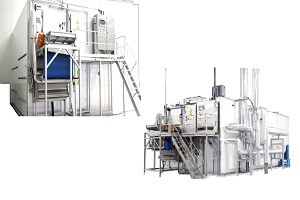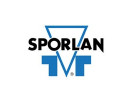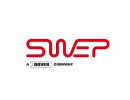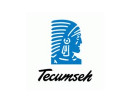Industrial Refrigeration Equipment
Industrial refrigeration equipment is a technical complex without which it is difficult to imagine any large enterprise, farm, or grocery department in our supermarkets and stores.
Buying Industrial Refrigeration Equipment
Starting a business or simply improving an existing one, entrepreneurs seek good and reliable refrigeration equipment for their shops or warehouses. Often, these individuals wonder where to buy industrial refrigeration equipment that meets all technical criteria and safety requirements.
For example, the company "Vector Lux," which has been operating in the Ukrainian market since 2003, sells industrial refrigeration equipment from manufacturers known for their energy efficiency and reliability.
Among the equipment, you can find refrigeration equipment from trusted manufacturers, liquid coolers, compressor stations, refrigeration units, air coolers, condensers, heat exchangers, compressors, and more.
In addition to being able to buy industrial refrigeration equipment in Lviv, the company provides delivery and installation services for production facilities.
Refrigeration Equipment: How to Choose
Before purchasing new refrigeration equipment for your company, it is essential to pay attention to several technical parameters. Additionally, you should consider the geographic location and all the specific characteristics of your products to ensure that refrigerated warehouses are efficient.
Because it is based on these nuances that specialized refrigeration equipment is selected to create and maintain the desired temperature and humidity levels in production facilities or warehouses where products are stored.
For example, industrial refrigeration equipment is often used in the following industrial sectors:
1. Food (food products, confectionery, vegetables, fruits, etc.).
2. Commercial (flower shops, display cases with food products, public catering).
3. Chemical (cosmetic products with natural ingredients, and more).
4. Foundry (cooling of liquids, metal parts, and products).
5. Agriculture (farms producing dairy and meat products, crop cultivation).
In whichever industry and location you use refrigeration equipment, its primary role is to create the desired microclimate in the room necessary for the preservation of products in the required and safe condition.
Refrigeration Equipment: Types
In addition to often selecting equipment for their businesses based on price criteria, entrepreneurs should also consider other factors when choosing refrigeration equipment.
Depending on the temperature regime and tasks assigned to it, industrial refrigeration equipment is further divided into:
1. Long-term storage in a frozen state.
2. Long-term maintenance in a chilled state.
3. Storage in a fresh state without freezing.
Thus, everyone can independently choose equipment tailored to their type of production. Additionally, industrial refrigeration equipment is categorized as low-temperature and medium-temperature, depending on temperature requirements.
Thanks to high-quality refrigeration equipment, we can now enjoy a wide variety of fresh, high-quality, and safe-to-consume products. Industrial refrigeration equipment is particularly essential in warm seasons when the demand for cold beverages and seasonal fruits and vegetables increases, while the risk of consuming spoiled food also rises significantly.
As mentioned earlier, when choosing refrigeration equipment for industrial purposes, it is crucial to consider all technical parameters. For example, it is essential to inquire about the refrigeration capabilities, specifically the manufacturer's maximum and minimum cooling temperatures.
Additionally, attention should be paid to the internal chamber volume, as this determines the capacity of refrigeration chambers and, subsequently, sales volume.
Another essential parameter is the equipment's power consumption.
This affects the speed of switching to the desired mode, the efficiency of use, and overall maintenance costs for the equipment as a whole.

